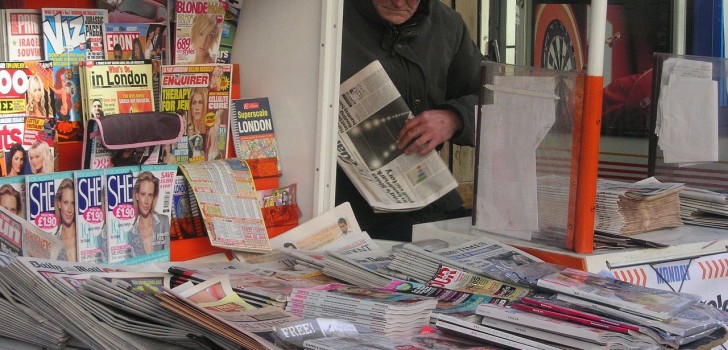Traditional print and online media publishers continue their battle against Internet supergiant Google; this time in Brussels. A group of media companies being led by Germany’s Axel Springer, are pushing for changes to Europe’s copyright framework. The main goal of the group is to receive some sort of compensation when search engines like Google reproduce portions of media companies’ articles.
For publishers, the stakes are high. Print revenues continue to fall and online advertising is under pressure. Moreover, few readers are willing to pay for online news when they can get it for free. A few powerful platforms like Google, Apple and Facebook are increasing their control over the distribution of publishers’ work.
If the publishers get their way with the European Commission, Google will have to pay them when it displays portions of their articles on its search site. This will open up a new source of revenue for the media companies. The flip side is that if the Commission decides to impose these “licensing fees,” Google may do what it already did in Spain- simply shut down Google News in the region – and thus not direct thousands if not millions of views to the publishers’ websites.
While media representatives are optimistic that the Commission will do something, other experts are not as confident. Some Commission officials are not convinced that media companies need stronger protection for their material.
In fact, the other side of the debate points out that publishers are trying to hold onto a business model that is long-outdated and does not reflect society’s current practices. Opponents to stronger copyright protections believe they will impinge upon free speech and an open Internet.
Nathalie Vandystadt, a spokeswoman for the Digital Single Market, believes that the Commission is keeping an open mind as it said it would. “Different solutions related to news aggregators [like Google], both legislative and market-led, are being tested at [the] national level. The Commission is closely looking into them. At this stage we have not yet a final position as to whether legislative intervention at EU level is needed. Commissioner Oettinger is open to different options and is looking into the best solutions to facilitate access to content while ensuring a fair remuneration for authors.”
The war between newspaper publishers and Google taking place in Europe is part of the larger debate regarding control of the digital economy. Publishers bear the cost and risk of producing original content but, unlike performing artists, broadcasters and film producers, publishers are not compensated when their work is reproduced.
Robert Thomson, chief executive of News Corp, which owns The Times, The Sun and the Wall Street Journal, also is vocal about Google’s “chokehold” over publishers. Last year, he wrote a letter to the Commission stating that Google’s “habitual appropriation of content and audiences” was largely responsible for the newspaper industry’s decline.
He further opined that, “Virtually every newspaper in Europe is in the midst of upheaval, and some will surely not exist five years from now, in part because of their own flawed strategy and lack of leadership, but also because of the value of serious content has been commodified by Google. Readers have been socialized into accepting this egregious aggregation as the norm.”
Stay Connected